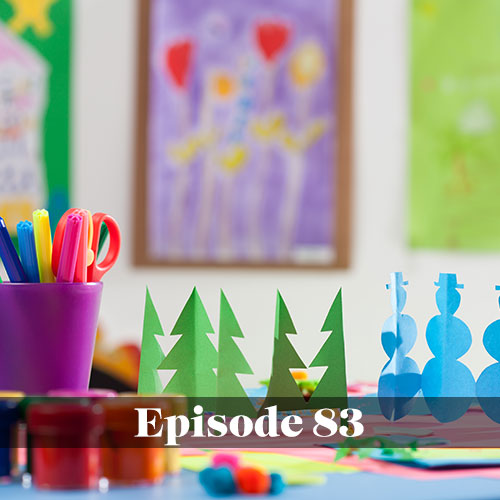Host Joel Gagne talks with Amanda Morris, Outreach Specialist for Allerton Hill Communications. Joel and Amanda discuss the communication needs for schools during the winter months and the difficulties schools may face communicating over the holidays.
Joel mentions that the holidays mix up routines for everyone, and schools are no exception. He asks for some tips from Amanda on how a school district can communicate effectively over the holidays.
“What I see all too often is that districts say, ‘Oh, it’s the holidays. I’m just going to quit communicating altogether,'” Amanda says.
She says that a big mistake that a lot of schools make is assuming that parents aren’t paying attention over the holidays. She says there is never a time throughout the calendar year for a school to stop communicating.
“People are busy, but you just need to find short, quick ways to make sure your message is finding a way into their spectrum of attention,” Amanda says.
Joel agrees, and says that a lot of assumptions are made that people are traveling, while a lot of people are actually home for the holidays.
Amanda says that while a parent has children in school, the parent’s life revolves around that school and its schedule. She suggests quick, fun videos showing students being thankful over the holidays. Even a quick video showing gratitude on a camera phone goes a long way, both with parents and with the entire community (including taxpayers).
“This is a time where we’re supposed to be thankful for the pieces of our lives, we’re celebrating those wonderful people in our lives, so celebrate the wonderful people in your school district,” Amanda says.
Joel says that there aren’t enough ways to say it, but this is the time for schools to really, really communicate with their communities that they are thankful.
“Just continuously saying ‘Thank you, thank you, thank you’ goes a long way of showing that gratitude,” Joel says.
Amanda says that it shouldn’t be just the staff members and students saying why they’re thankful to be part of the district.
“You should have principals, and teachers, and superintendents, and treasurers, whoever, saying why they’re thankful for the community’s support,” Amanda says. “You’re going nowhere without the community’s support, so you have to make sure you say ‘Thank you’ to them for that, otherwise it may not be there the next time you need it.”
Amanda says that the holidays are a great time for food drives, or blood drives, or toy drives to help support those who are less fortunate within the community.
“Those are great opportunities to show that you are also giving back to the community,” Amanda says. It shows that you care what’s happening with the citizens within the community.
Amanda shares an old adage that’s stuck with her: “People don’t care what it is you have to say until they know that you care.” She says giving back is a great way to show your community that you care.
Joel and Amanda switch gears to the “Merry Christmas” vs. “Happy Holidays” topic.
Amanda says that it’s important to understand where each community stands on this topic. She says that it was a larger issue 15 years ago, but today just acknowledging that it’s a holiday season in general is typically fine. She says that she’s worked in small, homogeneous school districts as well as large, diverse districts, and “Happy Holidays” is typically acceptable in both.
“You’re getting across all the same types of messages you want to get across, but you’re doing it in a way that is acknowledging everyone and isn’t offending pretty much anyone,” Amanda says. “Why not be an example of leadership in your community by including people?”
Joel agrees, and the two move onto discussing what school districts should be focusing on once the new year begins.
Amanda says that once the holidays are over, people are getting back into their routines. Often people just want to stay indoors either because the weather is bad or because they overspent on the holidays. People will be waiting on information to come to them, so schools should be using this time to reach out to their community, especially when it comes to finances.
“I encourage districts to be constantly communicating about their finances, because if they don’t, trust me, someone else will fill in those gaps for them,” Amanda says. She says this is a great time to show what’s going on in the classroom and to clarify how you’re working to stretch dollars.
Joel asks what school districts should do to be prepared for snow days in the event of inclement weather.
Amanda suggests that school districts do a test run of whatever system they have in place to communicate a snow day, whether it’s an email list, a phone call system, or even a phone tree or media contacts. She says it’s important to do this test run before there’s bad weather to ensure everything is working and to let the community know their options to get information.
Snow days are often a lose-lose situation, so it’s important to have a good system in place to communicate exactly what’s going on and to remind people to have a plan in case school does need to close.
Amanda says she’s seen school districts partner with local organizations to provide childcare, and she’s even seen some use technology to provide activities for the students while they’re home on a snow day. Parents feel better knowing that their children are learning something and are being productive, even if they’re not at school.
Amanda’s big final suggestion is that this can be a stressful time for families, so it’s a great time for schools to have fun with communications. Quick, fun videos can be powerful, and it’s important to be consistent with communications and with a school district’s brand, even when school may be out for the holidays.
Got a question or topic you’d like covered in an upcoming We Love Schools podcast? Email us at info@weloveschoolspodcast.com
First time listening to We Love Schools? Learn more about our weekly podcast.
Interested in learning more about how the Allerton Hill Communications team can help your school communicate effectively? Contact us today.






